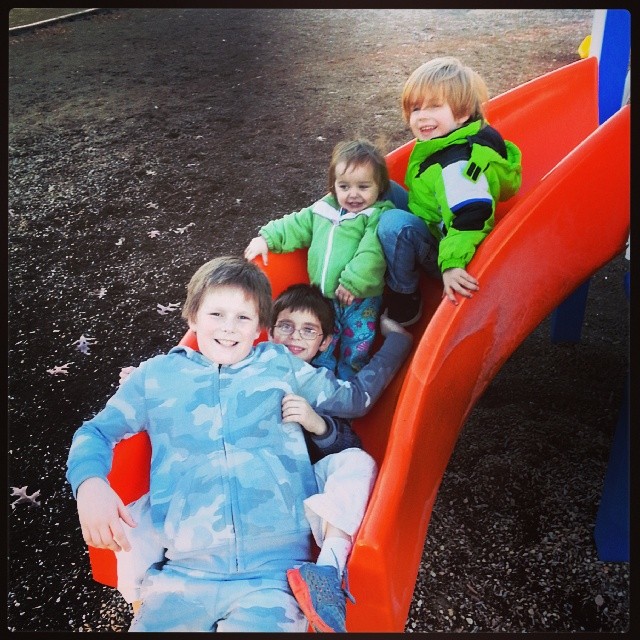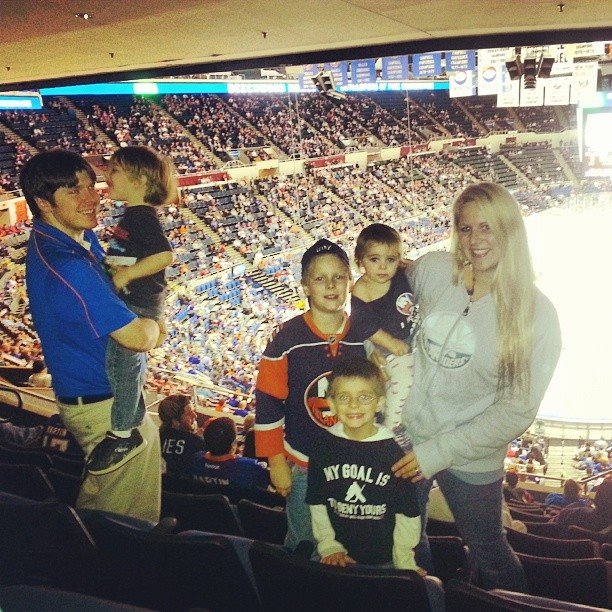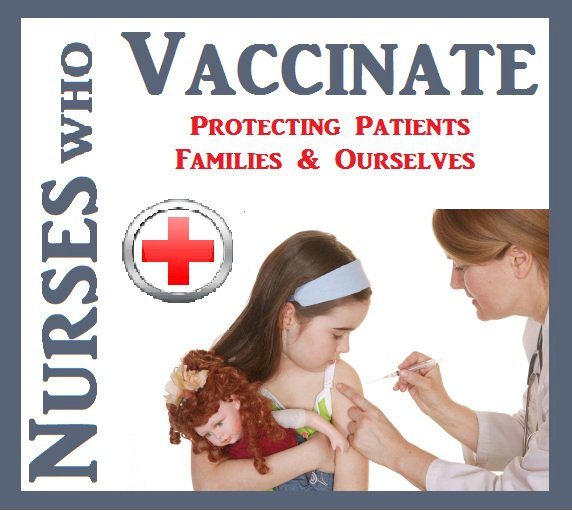 I viewed vaccines in the same light as any other medication that nurses distribute and administer. I studied immunisations in nursing school, knew the history of infectious diseases and read about outbreaks occurring in medical news updates. But it wasn’t until I was pregnant with my third son during the H1N1 outbreaks, that I really started paying closer attention.
I viewed vaccines in the same light as any other medication that nurses distribute and administer. I studied immunisations in nursing school, knew the history of infectious diseases and read about outbreaks occurring in medical news updates. But it wasn’t until I was pregnant with my third son during the H1N1 outbreaks, that I really started paying closer attention.
During the 2009 H1N1 outbreaks, I was very hesitant to get the “new” flu shot that was being discussed constantly in the media. In my home state, New York, there were plans to initiate a bill that would mandate all healthcare professionals to get the influenza vaccine or face being fired. Though I was a nurse and had the educational background, I was scared and overwhelmed by the scare reports I saw on the evening news and anecdotal stories I was reading on the internet. However, I was also concerned about protecting my unborn baby, and I knew I wouldn’t be able to escape having contact with the flu virus, especially with my current nursing unit containing >60% influenza patients. I was really torn in my decision to vaccinate or refuse and lose my job as a paediatric nurse.

My clinical educator, being fully aware of the risks involved with a pregnant mother refusing a flu shot, took the time to review the sources I was basing my decision on. I pulled up the different websites and articles, and one by one she was able to debunk the incorrect claims, explain why certain websites lacked credibility to provide medical information, and explain that anecdotal stories are not evidence-based research. I was shell-shocked and angry that I had been duped and swindled. I was a Registered Nurse, with a college education, and nursing certifications, yet I was being misled by conspiracy sites and parenting blogs. She then showed me accurate medical studies on the safety and effectiveness of not just the H1N1 vaccine but also the annual influenza vaccine. She was able to demonstrate that the influenza vaccines were indeed safe, effective, and vital to protecting myself, my baby, and my patients.

My experience encouraged me to ensure my patients and their families knew the true risk influenza posed for pregnant mothers, infants and the immunocompromised, as well as the importance of pregnant mothers getting flu shots during pregnancy in order to protect the baby and themselves.
I was just beginning to see the need for nurses to implement critical thinking skills and properly analyse news updates and educational information about immunisations, not just at the workplace but also for personal medical decisions. But it wouldn’t be for another year and another pregnancy, that I would get the push to create the organisation, “Nurses Who Vaccinate”.
Working nights meant that I was usually tired and with four kids I needed ways to stay awake. I took to using social media as a way to vent, stay awake and expel crankiness. I quickly discovered that there was plenty of shenanigans and misinformation on the Internet for me to call out and refute.

I searched for an antidote, a Facebook page run by nurses that supported immunisations, and discovered that none existed. There was the ANA Immunize Facebook page, but it wasn’t updated as frequently as the NWDV, and it wasn’t out there on the front lines dispelling the myths sprouted by the anti-vaccination advocates. That’s when I decided to roll up my sleeves and tackle this issue: I created the Facebook page “Nurses Who Vaccinate.” The plan was to provide visitors with current evidence-based information on immunisation and its benefits. The page was designed to alert visitors to immunisation-related educational opportunities and promote immunisation programmes and activities such as the Orange Noses Day. After creating the page, I started a Nurses Who Vaccinate Blogspot and a Nurses Who Vax Twitter account. I did this to access the different platforms of social media, particularly when I realised the misinformation was so incredibly widespread and found all over the internet.
 I used Nurses Who Vaccinate to respond to, and address, online parenting forums that presented misinformation about vaccines. Eventually my Internet information initiatives attracted the attention of The Wall Street Journal, which quoted me in a story about protecting infant children from pertussis, or whooping cough, a highly contagious bacterial infection of the upper respiratory system.
I used Nurses Who Vaccinate to respond to, and address, online parenting forums that presented misinformation about vaccines. Eventually my Internet information initiatives attracted the attention of The Wall Street Journal, which quoted me in a story about protecting infant children from pertussis, or whooping cough, a highly contagious bacterial infection of the upper respiratory system.
Due to my efforts, I was invited to participate and partner with other pro-vaccine organisations that encourage immunisation. Such organizations include Every Child by Two’s “Vaccinate Your Baby” and “Shot of Prevention;” both are great sources for vaccine information and a lead social media voice for promoting immunizations. It was through ECBT that I was introduced to Shot@Life, a movement that protects children worldwide by providing life-saving vaccines where they are most needed. In 2013, I was nominated to be a Shot@Life Champion, a role I was incredibly honored and proud of. Shortly afterward, I found myself on Capitol Hill with fellow inspiring Global Health Champions campaigning and promoting continued access to vaccines within third world countries.
One of my favorite organisations I am equally proud to be a part of is called Voices for Vaccines. VFV is a parent-driven organisation supported by scientists, doctors, and public health officials. It provides parents clear, science-based information about vaccines and vaccine-preventable disease. It is also a forum and opportunity to join the national discussion about the importance of on-time vaccination. I serve on the Parent Advisory Board and help to create easy-to-use toolkits for parents to educate their families and communities about the importance of vaccinating themselves and their children.
While the original “Nurses Who Don’t Vaccinate” no longer exists, there is a recently created Facebook page that has popped up called “Nurses Against Mandatory Vaccines.” Much like its precursor, it shares misleading articles that spread lies and misinformation about vaccines, and belittle the dangerous diseases that vaccines protect people from. It has amassed a large following which unfortunately allows the group to spread its misinformation to a larger audience. The existence of this group illustrates the need for pro-vaccine nurses and healthcare professionals to stand up, speak out, and take action. When I come across poorly educated nurses who deny the science behind vaccines, it is a reminder of the ongoing need for Nurses Who Vaccinate to exist.
However, I’m quite proud of the progress Nurses Who Vaccinate has made. We’ve recently become a member-based organisation and we have big plans for this year. Vaccines are truly life-saving, and they represent the best defense against diseases such as measles and pertussis. This year alone, vaccines will prevent 33,000 deaths and 14 million infections. But, if the anti-vaccinators and pseudoscience organisations are the only ones talking about vaccines, they’re going to create a large audience of vaccine-wary listeners who may end up forgoing vaccines. As healthcare workers, we are designated vaccine ambassadors and we must continue to do our part in educating and promoting vaccines. Whether it’s on a Facebook page, on the playground, or at a family dinner, health education and preventing disease is a 24 hour job for all of us.





Sian Morton
February 11th, 2014
Very inspiring Melody. You are a great role model for informed nurses.